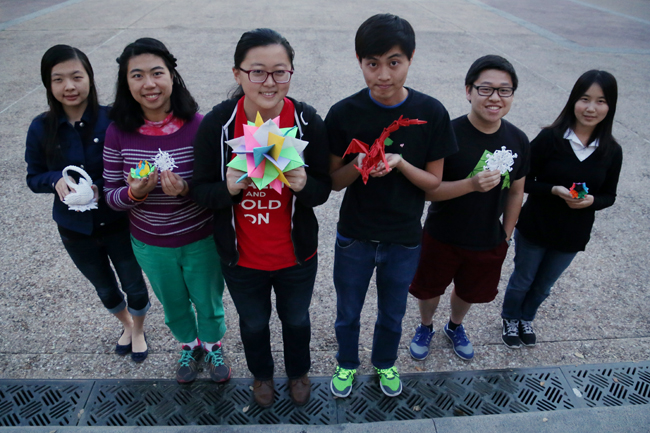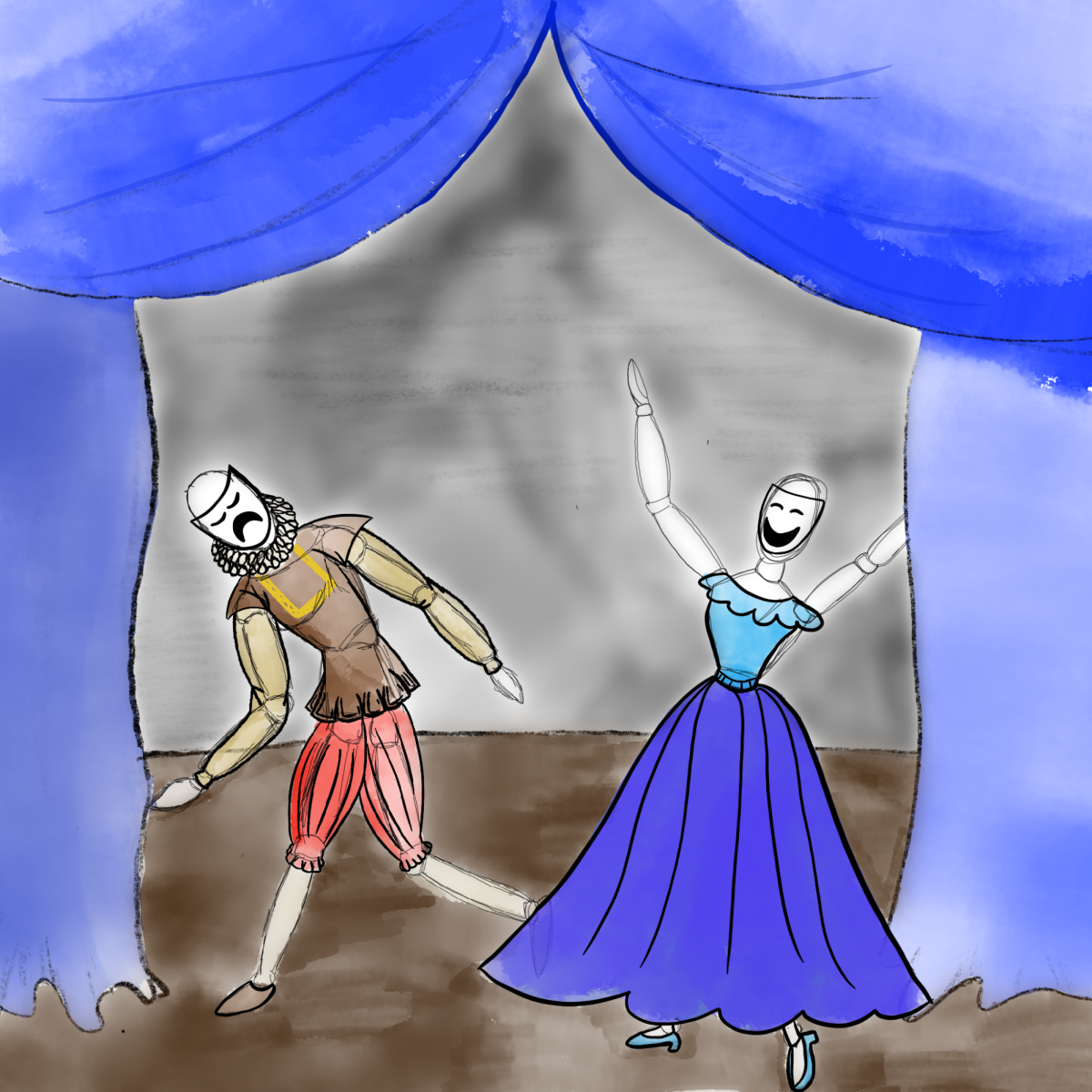For many students, papers lead to late nights full of frustration, but, for members of UT’s Healing Origami club, paper offers an escape from the everyday stresses of student life. Since 2007, the group has gathered once a week to socialize, craft different designs and learn new patterns.
“I feel like any type of hobby someone enjoys, and takes pleasure in doing, and makes them feel happy, is important,” co-president and biology junior Jiahui Qi said. “Personally, for me, origami has been my de-stressor, and I really wanted to help show other people that they can do the same thing.”
Healing Origami consists of about 15 students, who gather to create elaborate figurines by folding paper. Healing Origami also volunteers with different organizations in which the members can share their particular means of unwinding.
According to Samuel Lau, co-president and petroleum engineering senior, the group has collaborated with nursing homes and organizations such as Dell Children’s Medical Center of Central Texas and China Care, a foundation that aids Chinese orphans who have developmental or mental disabilities.
“The main goal is to help them reconnect with their Asian culture because they are adopted,” Lau said. “What we did was make different crafts that represented their culture — simple things like paper cranes.”
Qi said this semester, the group is searching for additional organizations with which it can partner, but, for now, the members are focused on internally developing the club.
“Our people range from people who have never done origami before to people who have done it for life,” Qi said. “We want to preserve the closeness of our group, but we also want to get other people interested in the club.”
Lau said the group’s name emphasizes both helping individual members and doing volunteer work with the community.
“Sometimes, whether it is a stressful week or something goes wrong in [our members’] lives, [Healing Origami] is something to cheer themselves up,” Lau said. “It’s kind of a way to get away from all that. The other part [is] where we teach children and people who are interested.”
Ruoxi Wu, computer science sophomore and member, said origami exists in various forms and is not necessarily an Asian practice.
“There are a lot of Americans and Europeans that are experts in this area,” Wu said. “I think a good example is Robert Long. He collaborated with NASA over a satellite that uses a folding technique related to origami, and it is also not just a type of art. It relates to math because of the geometry.”
Qi said she acknowledges members have busy schedules but believes in the importance of taking time to de-stress.
“I think that speaks out that origami can be used as something to alleviate stress just by being in a space folding together,” Qi said. “Our finished product is the finish line.”





















